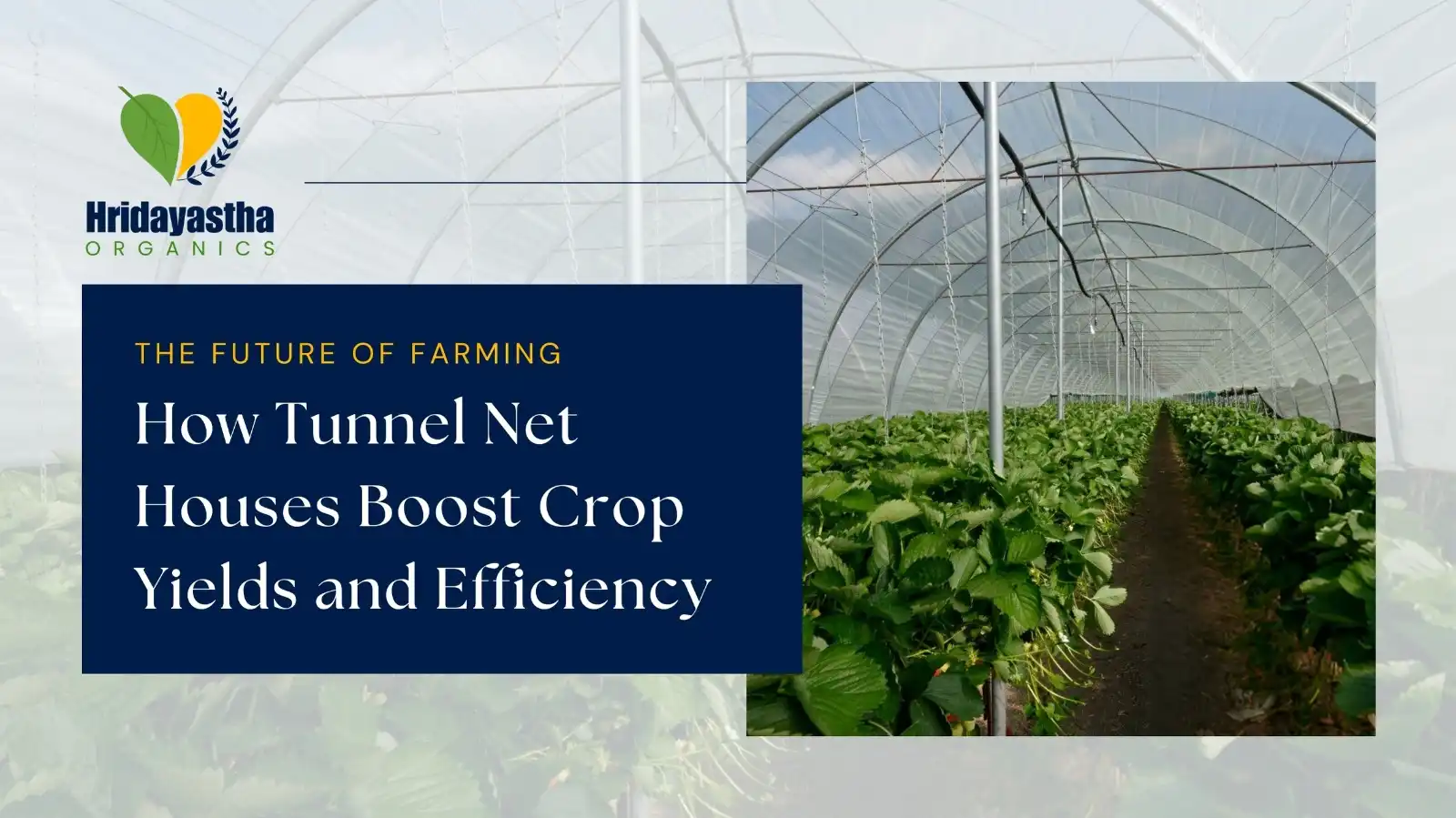Farming is undergoing a revolution. Traditional methods, which relied heavily on manual labor and natural cycles, are giving way to more efficient, technologically advanced practices that maximize productivity while minimizing resource use. Among these innovations, Tunnel Net Houses have emerged as a game-changer in the agricultural sector.
These high-tech farming solutions offer farmers a controlled environment that boosts crop yields, reduces pest damage, and helps conserve water. They provide a sustainable alternative to traditional open-field farming, which is increasingly under threat due to climate change and the pressure to produce more food for a growing global population.
At Hridayastha Organics Private Limited, we are embracing the future of farming with Tunnel Net Houses. Through these structures, we’re not only improving crop productivity but also contributing to sustainable agricultural practices that protect the environment while delivering fresh, healthy produce to our customers.
What are Tunnel Net Houses?
A Tunnel Net House is a type of greenhouse structure made with a framework of steel or plastic and covered with specially designed nets. Unlike traditional greenhouses that use glass or plastic sheets, Tunnel Net Houses use netting materials like shade nets or insect-proof nets to cover the structure, which offers unique advantages for crop production. These nets regulate sunlight, temperature, and humidity, creating an optimal growing environment for plants. They also act as a barrier against pests, diseases, and extreme weather, making them particularly beneficial in regions with harsh climatic conditions. At Hridayastha Organics, we use these Tunnel Net Houses to create the ideal environment for our crops, ensuring they grow in a controlled space where they are protected from external threats, leading to better quality and higher yields.Key Benefits of Tunnel Net Houses in Agriculture
- Protection from Pests and Weather
- Improved Growing Conditions
- Increased Crop Yield
- Water Conservation
- Lower Chemical Use
- Better Crop Quality
- Extended Growing Seasons

